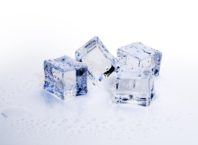Hydrogen water, like many things in Japan, was born at the crossroads of ancient traditions and modern innovation and is one of the most revolutionary discoveries of the 21st century that we have yet to comprehend and appreciate.
Contents
Oxidants and antioxidants. Effect on the human body
According to modern scientific concepts, one of the main causes of aging and the emergence of acute and chronic diseases is the impact on the body of active oxygen species or oxidants.
A complex of unfavorable factors – problematic environmental situation, toxic pollution of air, food and drinking water, exposure to various radiation, lack of physical activity, harmful habits – all this leads to excessive formation of oxidants in the body. The most dangerous of them are free hydroxyl radicals which are aggressive molecules capable of damaging fats, proteins, and DNA. This leads to the disruption of the functioning of cells, tissues, organs, and systems.
Mother Nature has provided protective mechanisms against the destructive effects of oxidants – antioxidant systems, including such ferments as superoxide dismutase (SOD), catalase, glutathione peroxidase, etc. But, unfortunately, they were not genetically programmed for such a powerful flow of oxidants and simply cannot cope with it.
The condition of the body, in which the destructive effect of oxidants on it exceeds its own protective antioxidant capabilities, is called “oxidative stress.” Taking synthetic antioxidants containing various vitamins and dietary supplements also does not solve the oxidative stress problem.
Popular vitamins and antioxidants are not only ineffective but also dangerous for the body in excess doses. This is due to several reasons.
- Firstly, the molecules of such antioxidants (e.g. vitamins C and E, coenzyme Q, etc.) are too large to easily penetrate the cell (and most oxidants are formed and produce their destructive activity inside the cell).
- Secondly, when interacting with free radicals, the antioxidants themselves turn into radicals because of the complex composition of the molecule, thus triggering uncontrolled chain oxidative reactions.
- Thirdly, excessive doses of such antioxidants absorb not only toxic but also useful free radicals that perform important functions for the body.
Thus, excessive fascination with such antioxidants leads to the disruption of metabolic processes and the acceleration of cell death.
How to cope with oxidative stress without harming the body?
Scientists have found that it is possible to eliminate oxidative stress effectively and safely with the help of molecular hydrogen. Researches have shown that hydrogen has unique properties that make it the most optimal antioxidant today. Many scientific works confirm the advantages of its use as the most effective and safe antioxidant.
A few words about Hydrogen
The very first element of the periodic system is the lightest, simplest, and most famous chemical element in the universe. It is about 75% of the total mass of its constituent elements. Hydrogen was discovered in 1766 and got its name from its ability to form water in the process of burning.
The word “hydrogen” comes from the Greek words “hydro” and “genes” and literally means “water-former.”
Each water molecule contains 2 hydrogen atoms and one oxygen atom. A living cell is 40-98% of water. The water content of the cell is the most important condition for its activity. Water is the main environment for biochemical reactions and the main means of transporting substances in the body. Thus, it would not be an exaggeration to say that water is the basis of life. And hydrogen gives us life!
How do you get hydrogen water?
There are several basic technologies of enrichment of drinking water with molecular hydrogen:
- Direct saturation (saturation with gaseous hydrogen);
- Electrolysis of water;
- The chemical reaction of water with metals (usually with magnesium) or metal hydrides.
Electrolysis and saturation are the most effective and safe technologies to ensure that there are no impurities and that the quality of ready hydrogen water is high.
In home conditions, hydrogen water is easily obtained with the help of the ENHEL WATER apparatus which was developed for Japanese medical institutions. This device purifies and enriches drinking water with hydrogen at a therapeutic concentration of 0.8-1.6 ppm. This technology is unique in its kind.
Its efficiency and safety are confirmed by international certificates of conformity and scientific researches. Due to the use of platinum and iridium electrodes in an electrolyzer, the process of obtaining hydrogen water is electrically safe and as short as possible. The pH value of the initial water does not change, the hydrogen concentration is easy to control, and the amount of impurities in the ready hydrogen water is close to zero.
As already mentioned, hydrogen is a very small and mobile molecule, and it quickly escapes from conventional containers. Therefore, it is desirable to use hydrogen water within 20 minutes after receipt or follow certain storage conditions. Japanese engineers have developed a special container for hydrogen water called “H2 Bag” which is made of metalized material impermeable to hydrogen molecules. It provides tightness and maintains an effective concentration of hydrogen for up to 7 days. This is very convenient – during work, sports, travel, spa, etc., hydrogen water is always at hand.
Who needs hydrogen water?
Hydrogen water is useful for everyone: children, adults, newborns, and the elderly. However, there are so-called “oxidative risk groups” that simply need hydrogen water. These groups include people who, for various reasons, are constantly exposed to increased oxidative stress – those who work in harmful conditions, athletes, cosmonauts, and people suffering from overweight/obesity or chronic diseases.












